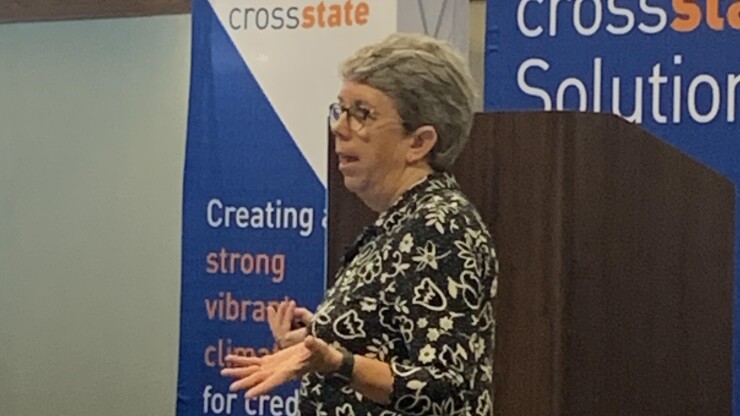An elderly credit union member recently received a phone call saying that her personal computer was locked up, and she would need to wire a payment to regain control.
"She wired $200,000 because she believed that she did not have access to her computer. That was a shocking lesson," said Cynthia Hagan, compliance and fraud risk director at the $7 billion-asset Vizo Financial Corporate Credit Union in Greensboro, North Carolina.
Such cases of financial abuse of the elderly are a growing concern for credit unions and other financial institutions. Elder fraud is responsible for more than $3 billion in losses each year, according to the Federal Bureau of Investigation.
The most common financial crimes with victims over 60 years of age last year involved "tech support" scams. There were nearly 14,000 cases reported nationwide in 2021, the FBI said.

And those were only the ones that were reported. Hagan said there is a big stigma involved with being taken advantage of, and so elderly victims often remain quiet. Adding to the stigma, most of these crimes are committed by someone the victim trusts such as a family member or caregiver, according to Hagan, who spoke at the CrossState Credit Union Association's recent
"Rarely do your members come in and admit that they've been taken advantage of. It's embarrassing," Hagan said.
Bret Fisher, the
"It truly is one of the most heartbreaking situations that we have to deal with in the financial industry," he said.
Time is the biggest resource the $179 million-asset credit union dedicates to try and prevent such abuse, Fisher said. It spends a lot of time having its security and management learn about different scams, situations and red flags that can identify potential abuse situations. Then it dedicates time to the next step, which is to make sure its staff knows how to have "tough and delicate" conversations with its members.
"The goal being that the member starts to realize the potential abuse and then accepts what is going on so we can then help them take the appropriate actions," Fisher said.
One of the hardest aspects of elder abuse is trying to get the victim to communicate what is happening, Fisher said. Credit unions and banks can usually uncover a problem by simply having a conversation, asking the right questions and having an open and friendly relationship with its members.
"However — and this is the tragic part — sometimes members just can't believe they are being taken advantage of and refuse to take any action," Fisher said. "And in some of these cases it is hard to help."
Hagan said some of the warning signs of elder financial abuse include abrupt changes in a will or other financial document, or an unexplained disappearance of funds.
Credit unions have a responsibility to be an advocate for those victims, she said. "We play a pivotal role in avoiding the financial loss entirely."
Michael Poulos, who
"As more and easier-to-use electronic channels become available, the fraudsters just adapt to the new channels," said Poulos, who had been the CEO of the $1.5 billion-asset credit union for the past 22 years.
The credit union has implemented numerous protective measures to help, as well as educated members about fraud, Poulos said. But he warned that fraudsters rely on members who choose to share personal account information, despite being warned not to do so.
"Ultimately, fraud prevention requires member diligence in protecting their information," he said. "Absent that, it is difficult for any financial institution to protect them completely."






